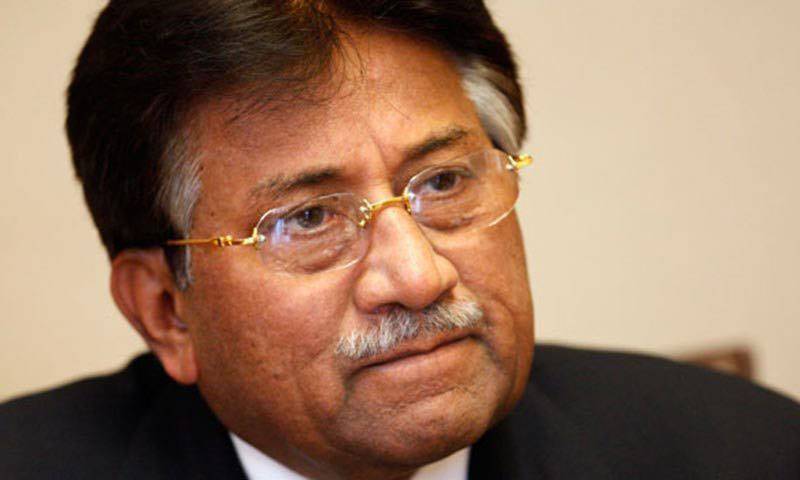ISLAMABAD - Four days before the resumption of high treason trial against former president General (retd) Pervez Musharr, the federal government filed an application in the Special Court seeking considerable time.
The government is considering various options, including filing an appeal in the Supreme Court against the November 21 order of the Special Court or challenge it in the High Court in writ jurisdiction under Article 199 of the Constitution. According to Section 12(3) of the Criminal Law Amendment (Special Court) Act 1976 “Any Party aggrieved by the final judgment of the Special Court may prefer an appeal to the Supreme Court within 30 days of the passing of the judgment.” The order passed on November 21 is not the final, but it had changed the nature of the whole case as the court directed the federal government to submit amended or additional statement and the formal charges of ex-PM Shaukat Aziz, former law minister Zahid Hamid and Justice (Retd) Abdul Hameed Dogar as co-accused in the high treason trial within a fortnight (December 9). Former president Lahore High Court Bar Association, Rawalpindi bench, Taufiq Asif, had filed the petition under Article 199 against the November 21 Special Court order in Islamabad High Court, which had summoned the Attorney General for Pakistan to assist the court on the maintainability of the writ petition. Besides appeal or writ petition the government can file reference in the Supreme Court seeking its advice under Article 186 of Constitution that whether the Special Court has power to direct the government to add the accused persons.
One of the prosecutors, in high treason case, on the condition of anonymity shared with The Nation that the jurisdiction of the Special Court is basically to determine the accused before it whether he is guilty or otherwise. “It is not competent to direct prosecution to add names of accused persons,” he said. The Section 5 (1) of the Act 1976 authorizes the federal government to forward to the Special Court, a complaint, on behalf of prosecution against accused person(s), while its Section 5(3)(a) says the federal govt can submit an amended or additional statement of the case or charge at any time before judgment is pronounced.
Pervez Musharraf had prayed to the Special Court to dismiss the federal government complaint against him, terming it to be based on selective prosecution. He therefore had requested the Special Court to implicate other persons or classes of persons or return the complaint to the government with the direction to re-file after inclusion of all persons as co-accused.
The Special Court in its November 21 judgment had noted: “Even if we assume that the then PM (Shaukat Aziz) and Law Minister (Zahid Hamid) themselves did not decide to replace the then Chief Justice of Pakistan with Justice Abdul Hameed Dogar but directed by the accused (Musharraf) even then their action fall with the definition of abetment given in section 107 of PPC.”
In the judgment Justice Faisal Arab of Sindh High Court and Justice Tahira Safdar from Balochistan High Court favoured the inclusion of other accused in the high treason case. However, Justice Yawar Ali disagreeing with them wrote, “There is no evidence on the record to establish that any person rendered advice to applicant (Musharraf) within the ambit of Article 48 of Constitution for imposition of emergency on November 3, 2007.” “No person can be summoned to face trial in a complaint unless requisite conditions under section 204 CrPc are fulfilled,” he added.
Friday, April 19, 2024
Govt seeks considerable time in Mush treason case

Minister advocates for IT growth with public-private collaboration
9:57 PM | April 19, 2024
Formula 1 returns to China for Round 5
9:05 PM | April 19, 2024
Germany head coach Julian Nagelsmann extends contract till 2026 World Cup
9:00 PM | April 19, 2024
IMF urges Italy, France to spend less, Germany to loosen purse strings
8:57 PM | April 19, 2024
Empowering Women: The Vision of Maryam Nawaz Sharif
8:37 PM | April 19, 2024
A Tense Neighbourhood
April 19, 2024
Dubai Underwater
April 19, 2024
X Debate Continues
April 19, 2024
Hepatitis Challenge
April 18, 2024
IMF Predictions
April 18, 2024
Kite tragedy
April 19, 2024
Discipline dilemma
April 19, 2024
Urgent plea
April 19, 2024
Justice denied
April 18, 2024
AI dilemmas unveiled
April 18, 2024
ePaper - Nawaiwaqt
Advertisement
Nawaiwaqt Group | Copyright © 2024





